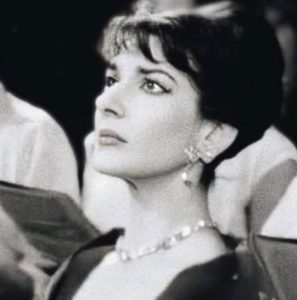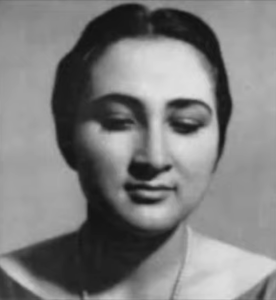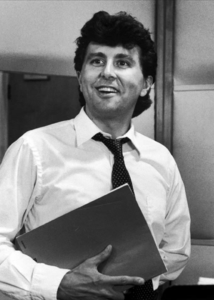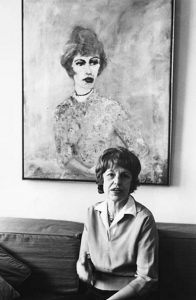Podcast: Play in new window | Download (Duration: 1:49:35 — 112.9MB) | Embed
Subscribe: Spotify | TuneIn | RSS | More
What is there to say about today’s featured artist, Maria Callas, who was born 100 years ago today? So many of my esteemed colleagues are weighing in with their Callas tributes today (both encyclopedic and deeply perceptive and knowledgeable) and there are all varieties of reconstituted Callas material also suddenly appearing, from newly-colorized films of Callas in action to virtual concerts with Maria as hologram, to some new biopic (goddess forbid!), to audio remasterings both laudable and ridiculous. I have nothing comparably “new” or erudite to add to the mix, so can only offer an episode predicated on my encounters with the voice and artistry of Maria Callas. There is no singer in the history of opera more important to me (and, I daresay, to opera in general) than Callas, who revolutionized bel canto and set completely new standards for every type of role she sang. I have chosen from among my favorite (live) Callas material to supplement my musings, going as far back as her Norma and Macbeth in 1952 and as late as her 1974 comeback and her last recording, made the year before her untimely death. In these musical excerpts, La Divina is joined by tenor colleagues (and Countermelody favorites) Cesare Valletti, Jon Vickers, and Franco Corelli. As I listened to Callas this week, I remarked anew at her creative genius, which sprang primarily from faithfulness to the written score, and a burning need to make every phrase she intoned “say something.” May this episode be as cathartic a listening experience for you as it was for me in preparing it. Maria per sempre!
Countermelody is a podcast devoted to the glory and the power of the human voice raised in song. Singer and vocal aficionado Daniel Gundlach explores great singers of the past and present focusing in particular on those who are less well-remembered today than they should be. Daniel’s lifetime in music as a professional countertenor, pianist, vocal coach, voice teacher, and journalist yields an exciting array of anecdotes, impressions, and “inside stories.” At Countermelody’s core is the celebration of great singers of all stripes, their instruments, and the connection they make to the words they sing. By clicking on the following link (https://linktr.ee/CountermelodyPodcast) you can find the dedicated Countermelody website which contains additional content including artist photos and episode setlists. The link will also take you to Countermelody’s Patreon page, where you can pledge your monthly support at whatever level you can afford. Bonus episodes available exclusively to Patreon supporters are currently available and further bonus content including interviews and livestreams is planned for the upcoming season.



